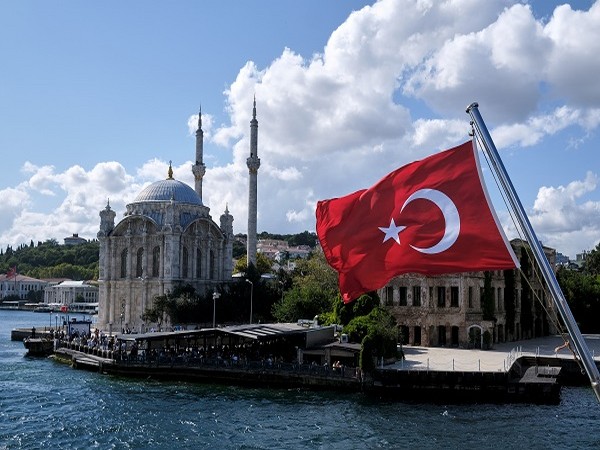Turkey opposition aims to hit back at Erdogan in local elections
The results are likely to be shaped in part by economic woes driven by rampant inflation, and by Kurdish and Islamist voters weighing up the government's performance and their hopes for political change. Opposition hopes of transformation were fuelled by local election results in 2019 when they defeated Erdogan's AK Party in the main two cities, Istanbul and Ankara, which had been run by the AKP and its Islamist predecessors for 25 years.

- Country:
- Turkey
Bruised and fractured by Tayyip Erdogan's victory in 2023 general elections, Turkey's opposition aims to land a blow in Sunday's local polls, with the future of its biggest hope, Istanbul Mayor Ekrem Imamoglu, tied to the outcome.
The nationwide municipal votes on March 31 could reinforce President Erdogan's control after two decades running Turkey, or signal change in the NATO member's deeply divided political landscape. The results are likely to be shaped in part by economic woes driven by rampant inflation, and by Kurdish and Islamist voters weighing up the government's performance and their hopes for political change.
Opposition hopes of transformation were fuelled by local election results in 2019 when they defeated Erdogan's AK Party in the main two cities, Istanbul and Ankara, which had been run by the AKP and its Islamist predecessors for 25 years. But Erdogan bounced back last year, retaining the presidency and winning a parliamentary majority with nationalist allies despite voters' concerns about a cost-of-living crisis. In response, a broad opposition alliance splintered. Polls show Imamoglu and the AKP candidate, former minister Murat Kurum, in a close race in Istanbul, a city of 16 million, where Erdogan made his name as mayor in the 1990s. The incumbent opposition mayor leads in the capital Ankara. Erdogan has been seeking a bigger role for Turkey on the world stage and sought to repair frayed ties with many nations in recent years, including in the Middle East. But during campaigning he said Turks should vote for the AKP to defend against unspecified enemies. "Those who cannot stomach Turkey's increasing power in the region and world, or its principled and fair stance, are currently waiting in ambush," he said on Monday at a rally in the northern province of Tokat.
"In 2019 when Erdogan and AK Party lost Istanbul, it was a big blow and it was a scratch on Erdogan's reputation. Up until then he was unbeatable, invincible," said Yetkin Report analyst Murat Yetkin, describing a win in Istanbul as vital for Erdogan. "If he does so, that means that he will be able to extend and endorse his power to local administrations," he said, with analysts saying Erdogan may then bid to change the constitution to enable him to stand as president again in 2028.
An Imamoglu victory would however revitalise the opposition, said political analyst Berk Esen of Sabanci University. "If the opposition candidate can win in Istanbul then at least the main opposition party will be able to gain sufficient strength to challenge Erdogan in the coming years," he said.
It was a message that Imamoglu sought to convey. "Turkey's destiny is in your hands," Imamoglu said in an appeal to young Turks in Istanbul. "You can change what is going wrong in Turkey with one vote."
Critics say Erdogan's government has muzzled dissent, eroded human rights and brought the judiciary and other state institutions under its sway, an accusation denied by officials. "The playing field is tilted in favour of the ruling alliance," said Esen. "Imamoglu is basically fighting alone."
Pro-government media give blanket coverage to Erdogan's daily rallies, with coverage of opposition campaigning limited. ECONOMY, GAZA SWAYING VOTERS
Erdogan's prospects appear to have been dented by a rise in support for the Islamist New Welfare Party due to its hardline stance against Israel over the Gaza conflict and dissatisfaction with the Islamist-rooted AKP's handling of the economy. Erdogan's rhetoric against Israel has been harsh but Ankara has maintained commercial ties with Israel, drawing criticism from Welfare, which has tapped into anger among Turks who want the government to be more active in supporting Palestinians. "If we, the Welfare Party, were in power, Israel would not be able to attack Gaza," the party's deputy leader Mehmet Altinoz told Reuters, calling for a trade embargo on Israel.
Polls indicate Welfare's support may have doubled to some 5%, eating into votes that may otherwise have gone to the AKP. "They have a more radical, anti-Israeli stance and this makes them popular among radical Islamists," said Yetkin. Erdogan's prospects of winning back Istanbul may also depend on Kurdish voters, many of whom are expected to put aside party loyalty and back Imamoglu, according to pollsters.
For other voters, the local elections offer an opportunity to give their verdict on the government's economic performance. Turks have been struggling with soaring prices for years, with annual inflation still near 70% despite a major U-turn in economic policy after last year's elections that lifted the key interest rate a massive 4,150 basis points to 50%. While the economy may be a key factor influencing voters nationwide, the focus of attention will be on Istanbul and the message it gives on the direction that Turkey is taking.
"If he loses this election, the legend of Ekrem Imamoglu would be in great trouble," said MAK Research head Mehmet Ali Kulat. But victory for him will change the picture. "Imamoglu would become an important actor in Turkish politics for the next 20 years and very likely be a candidate in the next presidential election."
(This story has not been edited by Devdiscourse staff and is auto-generated from a syndicated feed.)
ALSO READ
Turkey Greenlights Historic Talks with Kurdish Leader
Turkey's Strategic Energy Outreach in Post-War Syria
Turkey and U.S. Discuss Syrian Transition and Kurdish Militia Concerns
Turkey's Historic Move: Renewing Ties to Resolve a Decades-Old Conflict
Turkey, U.S. Vow Joint Efforts on Syrian Transition










